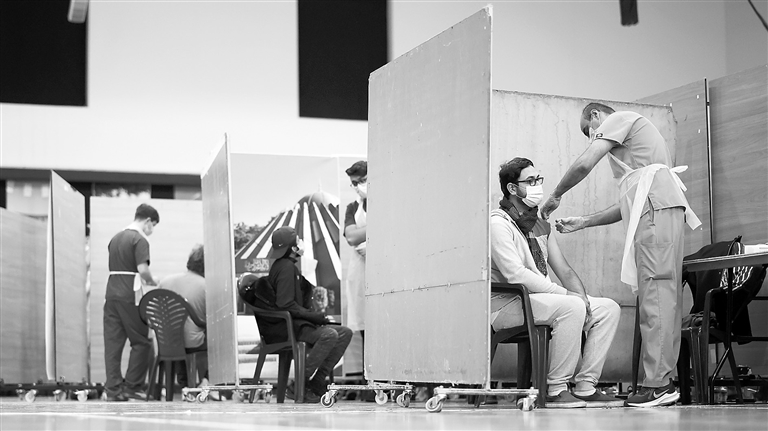
A STUDY in the United Kingdom led by the University of Birmingham in collaboration with Public Health England reported that waiting months between doses of the Pfizer/BioNTech vaccine produces much stronger protection against COVID-19. Dr. Helen Parry, a senior author on the study at Birmingham, said, “We’ve shown that peak antibody responses after the second Pfizer vaccination are really strongly boosted in older people when this is delayed to 11 to 12 weeks. There is a marked difference between these two schedules in terms of antibody responses we see.” Britain has a policy of delaying the second dose by up to 12 weeks to free up vaccines for more people. Britain announced Sunday that more than 20 million people have now received both doses. The two shots of the Pfizer vaccines were intended to be given three to four weeks apart. The study found that antibodies were three-and-a-half times higher when given after 12 weeks. “This study further supports the growing body of evidence that the approach taken in the U.K. of delaying that second dose has really paid off,” said Dr. Gayatri Amirthalingam, consultant epidemiologist at Public Health England. “Individuals need to really complete their second dose when it’s offered to them because it not only provides additional protection but potentially longer lasting protection against COVID-19.” Pfizer was not affiliated with the study. “Pfizer can only comment on the dosing regime and outcomes outlined in our Phase III clinical trial, which demonstrated that two doses administered 21 days apart resulted in vaccine efficacy of 95 percent,” said Pfizer spokesperson Jerica Pitts. “Overall, these data add considerable support to the policy of delaying the second dose of COVID-19 vaccine when vaccine availability is limited and the at-risk population is large,” said Eleanor Riley, professor of immunology and infectious disease at the University of Edinburgh. “Longer term follow-up of this cohort will help us to understand which vaccine interval will be optimal in the future, once the immediate crisis is over.”(SD-Agencies) | 
